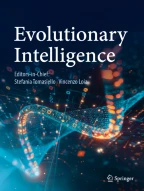Abstract
Mixed integer optimization is very important and complicated task in the optimization field, which widely exists in the engineering problems. In order to improve the efficiency of derivative-free algorithm when solving the mixed integer optimization problems, we propose an efficient derivative-free algorithm, which is based on the modified minimal positive base and the technique of search directions rotation. The method using the modified minimal positive base only needs at most \(n+1\) function evaluations at every iteration, compared with the derivative-free algorithms based on the maximal 2n positive base, where n is the number of variables. Meantime, the technique of search directions rotation we proposed can overcome the disadvantage of the method based on the minimal positive base which can cause undesirable large angles between some positive base directions and large unexplored feasible domain. Accordingly the convergence to stationary points is proved. To evaluate the performance of our method, we compare it with two classical algorithms on 50 benchmark problems. The results of numerical experiments show that the method can reduce the number of function evaluations and improve the efficiency of the algorithm.
Similar content being viewed by others
Explore related subjects
Discover the latest articles, news and stories from top researchers in related subjects.References
Audet C, Dennis JE (2001) Pattern search algorithms for mixed variable programming. SIAM J Optim 11(3):573–594
Abramson MA (2002) Pattern Search Algorithms for Mixed Variable General Constrained Optimization Problems. Rice University, Houston
Abramson MA, Audet C, Dennis JE (2007) Filter pattern search algorithms for mixed variable constrained optimization problems. Pac J Optim 3(3):573–594
Lucidi S, Piccialli V, Sciandrone M (2005) An algorithm model for mixed variable programming. SIAM J Optim 15(4):1057–1084
Sriver TA, Chrissis JW, Abramson MA (2009) Pattern search ranking and selection algorithms for mixed variable simulation-based optimization. Eur J Op Res 198(3):878–890
Abramson MA, Audet C, Chrissis JW et al (2009) Mesh adaptive direct search algorithms for mixed variable optimization. Optim Lett 3(1):35–47
Liuzzi G, Lucidi S, Rinaldi F (2012) Derivative-free methods for bound constrained mixed-integer optimization. Comput Optim Appl 53(2):505–526
Liuzzi G, Lucidi S, Rinaldi F (2014) Derivative-free methods for mixed-integer constrained optimization problems. J Optim Theory Appl 164(3):933–965
Newby E, Ali MM (2015) A trust-region-based derivative free algorithm for mixed integer programming. Comput Optim Appl 60(1):199–229
Mller J, Shoemaker CA, Pich R (2013) SO-MI: a surrogate model algorithm for computationally expensive nonlinear mixed-integer black-box global optimization problems. Comput Op Res 40(5):1383–1400
Mller JMISO (2016) mixed-integer surrogate optimization framework. Optim Eng 17(1):1–27
Guo JY, Lu WX, Yang QC, Miao TS (2019) The application of 0–1 mixed integer nonlinear programming optimization model based on a surrogate model to identify the groundwater pollution source. J Contam Hydrol 220:18–25
Bjarne G, Henrik A (2019) ReLU networks as surrogate models in mixed-integer linear programs. Comput Chem Eng 131:16580
Audet C, Dennis JE (2006) Mesh adaptive direct search algorithms for constrained optimization. SIAM J Optim 17(1):188–217
Lucidi S, Sciandrone M (2002) A derivative-free algorithm for bound constrained optimization. Comput Optim Appl 21(2):119–142
Ianni A, Audet C, Digabel SL, Tribes C (2014) Reducing the number of function evaluations in mesh adaptive direct search algorithms. SIAM J Optim 24(2):621–642
Cust AL (2006) Using simplex gradients of nonsmooth functions in direct search methods. IMA J Numer Anal 28(28):770–784
MATHWORKS, I. MATLAB GADS toolbox. (2005) http://www.mathworks.com/products/gads/
Elster C, Neumaier A (1995) A grid algorithm for bound-constrained optimization of noisy functions. IMA J Numer Anal 15:585–608
Hock W, Schittkowski K (1981) Test examples for nonlinear programming codes. Lecture notes in economics and mathematical systems. J Optim Theory Appl 187:26–122
Schittkowski K (1987) More Test Examples for Nonlinear Programming Codes, vol 282. Lecture Notes in Economics and Mathematical Systems. Springer, Berlin
Hedar A Test functions for unconstrained global optimization. http://www-optima.amp.i.kyoto-u.ac.jp/member/student/hedar/Hedar_?les/TestGO_?les/Page364. htm. Accessed 15 Feb 2013
MorE JJ, Wild AS (2009) Benchmarking derivative-free optimization algorithms. SIAM J Optim 20:172–191
Acknowledgements
The study of Yang was funded by Yanta Scholars Foundation of Xian University of Finance and Economics.
Author information
Authors and Affiliations
Corresponding author
Additional information
Publisher's Note
Springer Nature remains neutral with regard to jurisdictional claims in published maps and institutional affiliations.
Rights and permissions
About this article
Cite this article
Yang, S., Liu, H. & Pan, C. An efficient derivative-free algorithm for bound constrained mixed-integer optimization. Evol. Intel. 17, 11–20 (2024). https://doi.org/10.1007/s12065-019-00326-2
Received:
Revised:
Accepted:
Published:
Issue Date:
DOI: https://doi.org/10.1007/s12065-019-00326-2
